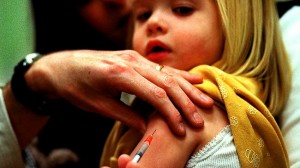Immunisation gaps in CALD communities
 Pockets of under-immunisation in refugee and migrant communities are emerging around Australia, according to public health experts.
Pockets of under-immunisation in refugee and migrant communities are emerging around Australia, according to public health experts.
Government funding for immunisation is available only for people younger than seven – meaning many refugees arrive in Australia after the cut off date for federal programs. Many are not able to pay for expensive vaccines.
The experts warn the situation could spark epidemics of diseases thought to be eradicated in Australia.
Under-immunisation in refugee and migrant communities is risking outbreaks of vaccine-preventable disease across Australia, according to Professor Raina MacIntyre, Head of the School of Public Health and Community Medicine at the University of NSW.
“We’ve seen large outbreaks of measles, the largest since 1998, in the last couple of years in Sydney and western Sydney and these have been definitely linked to under-immunised migrant populations,” Professor MacIntyre said.
“There is no universal, national initiative to catch up under-immunised migrants and refugees. Say a child comes to Australia as a refugee or migrant at the age of 12 and so they’ve missed out on scheduled immunisation points on our national immunisation schedule. There’s no national mechanism to ensure they get catch-up vaccinations that is funded,” she said.
Diseases such as measles are largely eradicated in Australia but Professor MacIntyre says they are still being imported from overseas.
“People of a migrant or refugee background who are going to their country of origin to visit their friends or relatives are more at risk because they are less likely to seek travel advice and more likely to be under immunised,” she said.
She said this meant that as people change locations and doctors, their vaccination records are often lost, and the process of catching up on immunisations for those who want them, must begin again.
Public Health lecturer Dr Anita Hayward said children who travelled overseas frequently also might miss opportunities for vaccination.
She said that unless a person is under the age of seven, there is no national register of general immunisations, and the immunisation was not free.
“Immunisation is free up until the age of seven. After that you have to pay for it,” she said.
“Also, many refugees come from places where the vaccination program may not be working because of war or strife.
“So what we’re seeing is the potential a build-up of population susceptibility, in some communities, for diseases like measles or Hepatitis B and rubella,” said Dr Hayward, also of the University of New South Wales’s School of Public Health.
Most states do not fund catch-up immunisations for Hepatitis B, Human Papilloma Virus or certain strands of meningococcal disease.
And to reach suggested national standards of immunisation, a person with no immunisation history might have pay up to $730.












